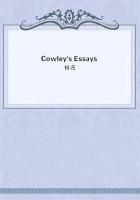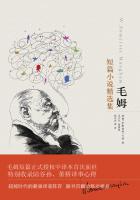It is disputable whether we ought to measure a service by its utility to the receiver and make the return with a view to that, or by the benevolence of the giver. For those who have received say they have received from their benefactors what meant little to the latter and what they might have got from others-minimizing the service; while the givers, on the contrary, say it was the biggest thing they had, and what could not have been got from others, and that it was given in times of danger or similar need. Now if the friendship is one that aims at utility, surely the advantage to the receiver is the measure. For it is he that asks for the service, and the other man helps him on the assumption that he will receive the equivalent; so the assistance has been precisely as great as the advantage to the receiver, and therefore he must return as much as he has received, or even more (for that would be nobler). In friendships based on virtue on the other hand, complaints do not arise, but the purpose of the doer is a sort of measure; for in purpose lies the essential element of virtue and character.
14
Differences arise also in friendships based on superiority; for each expects to get more out of them, but when this happens the friendship is dissolved. Not only does the better man think he ought to get more, since more should be assigned to a good man, but the more useful similarly expects this; they say a useless man should not get as much as they should, since it becomes an act of public service and not a friendship if the proceeds of the friendship do not answer to the worth of the benefits conferred. For they think that, as in a commercial partnership those who put more in get more out, so it should be in friendship. But the man who is in a state of need and inferiority makes the opposite claim; they think it is the part of a good friend to help those who are in need; what, they say, is the use of being the friend of a good man or a powerful man, if one is to get nothing out of it?
At all events it seems that each party is justified in his claim, and that each should get more out of the friendship than the other-not more of the same thing, however, but the superior more honour and the inferior more gain; for honour is the prize of virtue and of beneficence, while gain is the assistance required by inferiority.
It seems to be so in constitutional arrangements also; the man who contributes nothing good to the common stock is not honoured; for what belongs to the public is given to the man who benefits the public, and honour does belong to the public. It is not possible to get wealth from the common stock and at the same time honour. For no one puts up with the smaller share in all things; therefore to the man who loses in wealth they assign honour and to the man who is willing to be paid, wealth, since the proportion to merit equalizes the parties and preserves the friendship, as we have said. This then is also the way in which we should associate with unequals; the man who is benefited in respect of wealth or virtue must give honour in return, repaying what he can. For friendship asks a man to do what he can, not what is proportional to the merits of the case; since that cannot always be done, e.g. in honours paid to the gods or to parents; for no one could ever return to them the equivalent of what he gets, but the man who serves them to the utmost of his power is thought to be a good man. This is why it would not seem open to a man to disown his father (though a father may disown his son); being in debt, he should repay, but there is nothing by doing which a son will have done the equivalent of what he has received, so that he is always in debt. But creditors can remit a debt; and a father can therefore do so too. At the same time it is thought that presumably no one would repudiate a son who was not far gone in wickedness; for apart from the natural friendship of father and son it is human nature not to reject a son's assistance. But the son, if he is wicked, will naturally avoid aiding his father, or not be zealous about it; for most people wish to get benefits, but avoid doing them, as a thing unprofitable.-So much for these questions.















